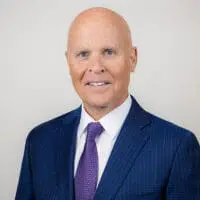Environmental & Natural Resources Law
Who Will Climate Change Advocates Begin Suing Next?
As most people are aware, various public and private entities have filed lawsuits against fossil fuel producers alleging a variety of claims that seek to enjoin behavior and obtain damages as a result of the defendants’ contributions toward climate change. But the question arises as to whether the plaintiffs will be satisfied in suing only the producers of the fossil fuels. Anyone involved in the entire supply chain is a potential target, from middle-men distributers to transporters to gas stations. The realm of possible defendants who now or in the past have dealt with gasoline distribution and usage is enormous.
Further, what is to stop plaintiffs from expanding beyond the distribution and sales system? Aren’t the people using the fossil fuels just as liable for the damages caused by their emissions? Every energy company that ever burned coal, oil or natural gas, is a likely target. While individual vehicle owners are unlikely to be joined, what about trucking companies? What about the manufacturers of different consumer and industrial engines and products containing engines that use fossil fuels? Vehicle manufacturers are very obvious targets. For over 100 years this nation’s energy needs were almost entirely furnished by fossil fuel use, and any company that was involved in its use is clearly a potential target.
An interesting twist to this is that the focus of some of the more recent lawsuits has begun to shift away from claims directly involving the actions of the defendants in causing climate change, and more toward consumer fraud. While this may be the result of difficulties in proving causation, this new angle – that the companies are misleading the public about the impacts of their operations and the usage of their products – raises the same questions regarding whether these plaintiffs intend to stop at suing the companies, or whether they will expand the scope of their lawsuits and start bringing in others who simply do business with fossil fuel companies. For example, some of the newer lawsuits name the American Petroleum Institute, an industry trade group, alleging that the Institute has been a major factor in misleading the public. Because of the broad nature of the consumer fraud allegations, virtually anyone involved with the industry could be brought into the litigation – including anyone who advertised for the use of a product that used fossil fuels!
Recently, claims have been filed with the FTC alleging that the advertisements of the companies are misleading. The next obvious target with that would appear to be the companies that create the advertisements, and then the media that presents them.
Any company involved in any way with the use of fossil fuels should begin to prepare.
























